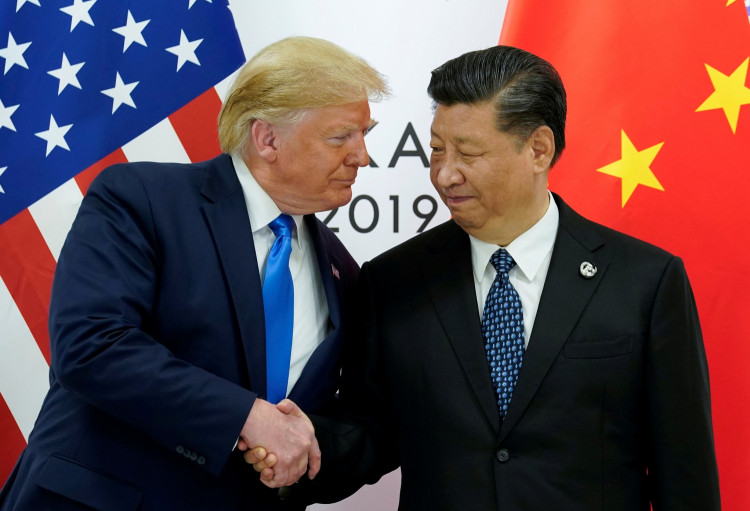China retaliated Wednesday with an 84% tariff on U.S. goods, a sharp escalation in the trade war following President Donald Trump's implementation of a 104% levy on Chinese imports. The move by Beijing triggered a broad market selloff, deepening investor anxiety over the global economic fallout from the rapidly intensifying conflict between the world's two largest economies.
The tariffs, announced by China's Ministry of Finance, target roughly $145 billion worth of U.S. exports, including critical sectors such as oilseeds and grains. Those industries, particularly American farmers, are expected to bear the brunt of the response. The U.S. had initially imposed a 10% duty on Chinese goods citing fentanyl trafficking concerns, but after a series of tit-for-tat escalations, tariffs reached an unprecedented 104% by early Wednesday.
Financial markets reeled on the news. The S&P 500 slid toward bear market territory, dropping nearly 20% from its recent highs. U.S. stock futures were down 1.5% as of 7:30 a.m. ET. Oil plunged 6% to $56 a barrel, while U.S. Treasury yields spiked 13 basis points to 4.39%, an unusual move signaling that even traditional safe-haven assets were being shed by investors.
"The U.S. and China are stuck in an unprecedented, and expensive, game of chicken," said Ting Lu, chief China economist at Nomura. "It seems that both sides are unwilling to back down."
Trump's new tariff package, announced on April 2 and effective as of 12:01 a.m. Wednesday, marked the most sweeping trade action in decades. In response, China not only raised its own levies but told the World Trade Organization that the U.S. actions threaten to destabilize the global trading system. "China expresses grave concern and firm opposition to this reckless move," Beijing said in a statement submitted to the WTO.
The White House has not yet commented on China's retaliation. U.S. Treasury Secretary Scott Bessent, speaking to Fox Business, said: "They have the most imbalanced economy in the history of the modern world, and I can tell you that this escalation is a loser for them."
The tariffs triggered a cascade of global reactions. European equities fell sharply, and the dollar weakened against other major currencies. Emerging market assets also took a beating amid fears of contagion. In China, the offshore yuan touched record lows before Beijing reportedly instructed state-owned banks to curb U.S. dollar purchases, in an attempt to stabilize the currency.
The European Union is now preparing to join China, Canada, and others in countering Washington's trade moves. EU member states are expected to approve the European Commission's proposed retaliatory duties-mostly around 25%-on a range of American products including motorcycles, fruit, poultry, and clothing.
Despite the market turbulence, Trump has continued to present the tariffs as both a negotiation tool and a long-term strategy. These are "permanent," he said, while also hinting that they could be lifted if foreign governments seek talks. That ambiguity has only added to investor uncertainty.






